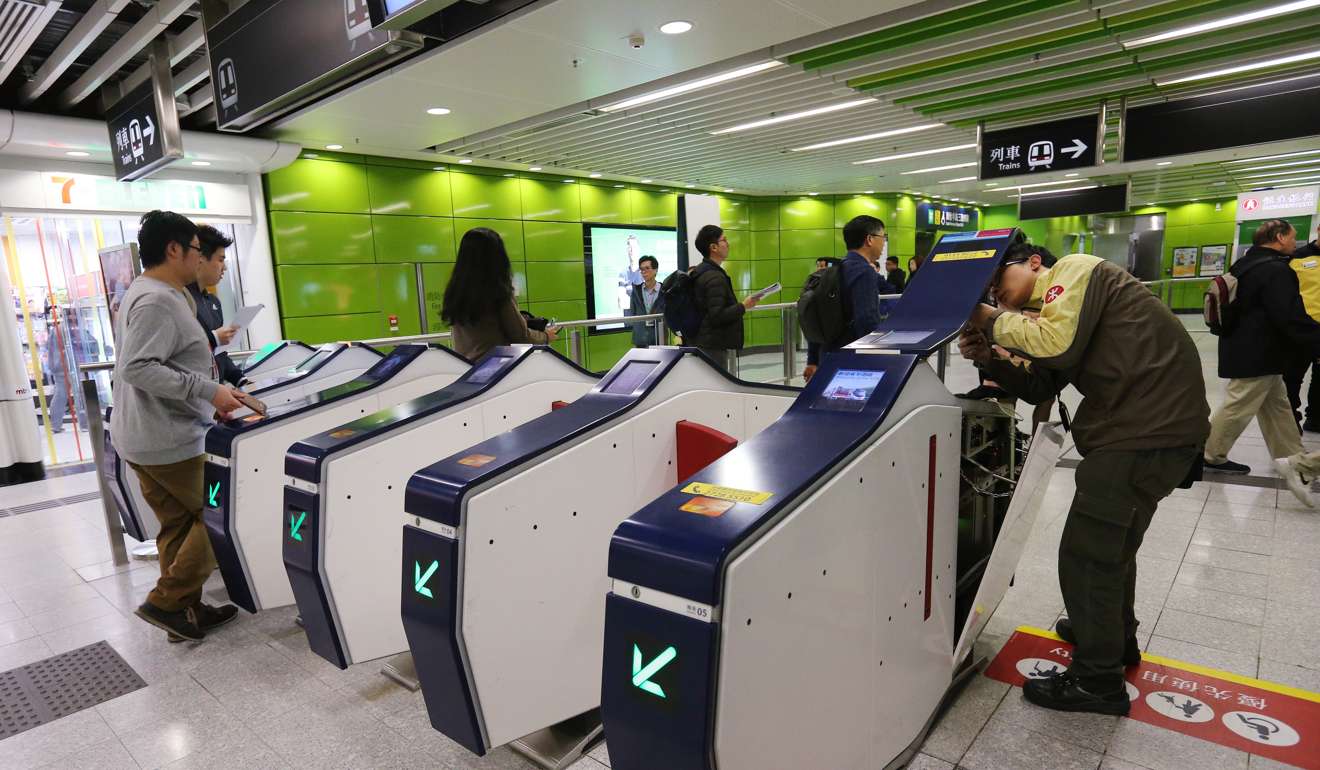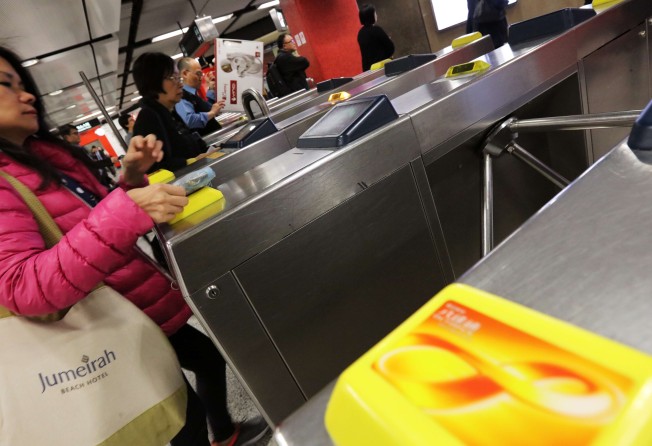
Hong Kong MTR to offer 3 per cent fare rebates per trip while retaining price mechanism as dissent grows over fee rise
Legal agreement in 2007 makes revamp of controversial formula difficult

After spending a year reviewing the way Hong Kong’s railway system sets ticket prices, the government has rejected public demands for an overhaul and instead decided on a 10 per cent discount on fare adjustment rates, along with other concessions to ease the burden on passengers.
Secretary for Transport and Housing Anthony Cheung Bing-leung announced on Tuesday that the government and the MTR Corporation had agreed to keep the existing fare setting formula unchanged, but the rail giant would offer concessions worth about HK$587 million a year to passengers travelling with Octopus cards.
Under the renewed mechanism for the next five years, the annual calculated fare adjustment rate will be discounted by 10 per cent this year only.
Passengers will also get a 3 per cent rebate on fares for every Octopus trip for at least the first six months of each year. This will replace an existing 10 per cent discount for every second trip, while the MTR’s profit-sharing fund for concessions will be increased to HK$325 million.

Also, a new discount of HK$0.3 for commuters switching between the MTR network and more than 500 green minibus routes will be offered to Octopus users, with details to be announced.
The government, which holds a 75 per cent stake in the MTR, forced the review one year ahead of schedule in response to mounting public pressure for lower fares, as 2016 was the seventh straight year of increase in ticket prices despite the MTR’s big profits.
Fares have gone up by 25.2 per cent since 2009, when the mechanism officially took effect. Constantly rising ticket prices have created an impression with the public that the MTR has used the mechanism as a weapon to justify increases over the past eight years without regard for the burden on commuters.
Any fare increase in future will still be based on a formula that takes into account wages and inflation.
Cheung said big changes were hard to implement as the formula was part of the legal agreement made in 2007 between the government and the MTR Corp.
“The agreement is legally binding. Any substantial changes will need the consent of the MTR Corp’s small shareholders. But it doesn’t mean that we can’t make changes through the fare concessions,” he said.
MTR chairman Frederick Ma Si-hang said they had tried hard to balance the interests of all stakeholders while maintaining the rail giant’s financial sustainability.
In terms of savings, for example, an adult Octopus user travelling between Tsuen Wan and Tsim Sha Tsui once a day for a month will save HK$72, and for twice daily trips, monthly savings will be HK$144.
But Civic Party lawmaker Jeremy Tam Man-ho said: “There is no change to the formula at all. If the current methodology is maintained, fares will only continue to go up and not down.”
Lawmaker Michael Tien Puk-sun, a former railway chief, said fares might actually be frozen.
Under the mechanism, if the outcome dictates a fare increase of 1.5 per cent or lower in a given year, there will be no fare rise in that year. The unadjusted percentage will be rolled over to the next year.
The main indices influencing the mechanism are the Composite Consumer Price Index and the Nominal Wage Index. Judging from the recent changes in the two factors, Tien said it was possible that the fare would be frozen this year. Together with the 3 per cent reduction, the outcome is “unprecedented”.
Dr Hung Wing-tat, an associate professor of transport studies at Polytechnic University, said MTR should freeze fares if its profits reached a certain threshold, and that it should consider concessions for low-income people.
Additional reporting by Raymond Yeung